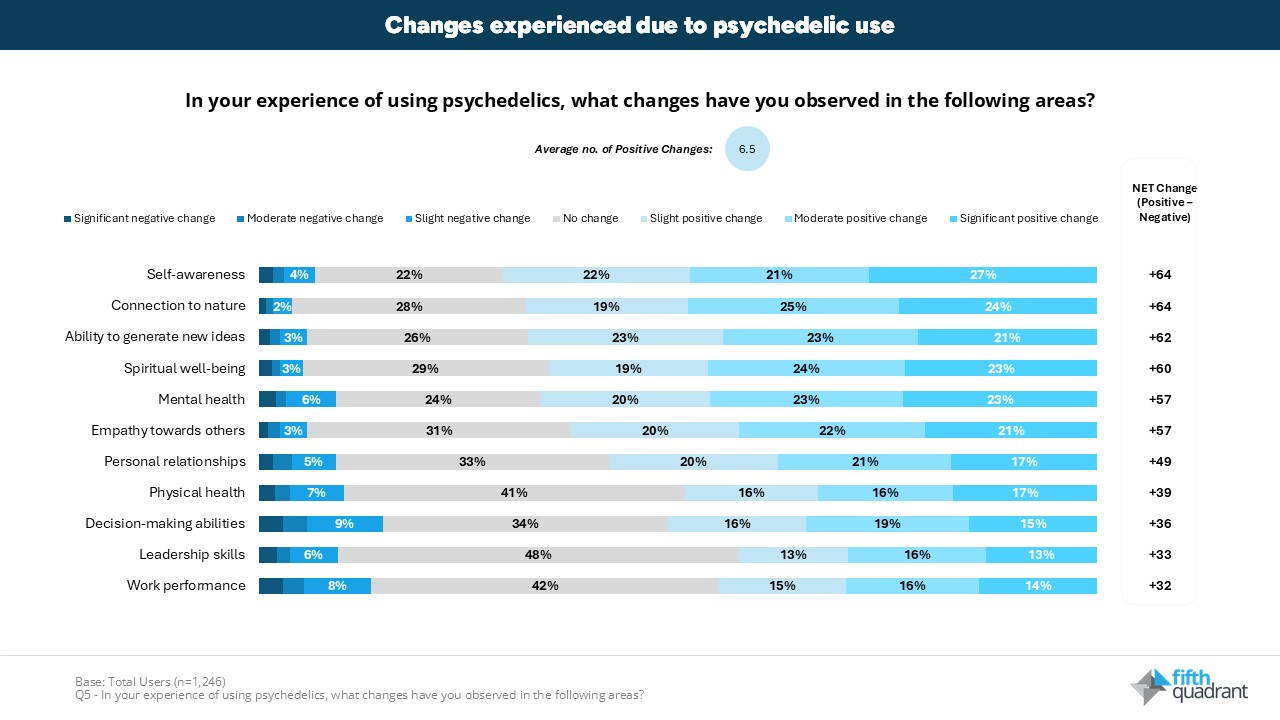Author: Dr Steve Nuttall | Posted On: 23 Sep 2025
The conversation around psychedelics has shifted dramatically. What was once relegated to counterculture movements is now being studied in professional contexts. Our latest research reveals that Improved decision making, stronger leadership skills, and a heightened capacity for innovation are some of the key business benefits reported by users of psychedelics in Australia and the US.
We surveyed 1,500 adults aged 18 years and older (750 respondents in Australia, 750 in the US), who have either engaged in or would consider using psychedelic substances.
Key survey highlights:
- 52% report long-term improvements in company leadership
- 76% see increased creative idea generation with the data indicating a 63% net positive change in empathy and 51% net positive change in decision making
- 52% report lasting positive effects in self-awareness
- 73% believe psychedelics can transform innovation in technology, the arts, and leadership
- 41% say that Donald Trump would be a more inclusive leader if he participated in a guided psychedelic experience

Motivations for use
Survey respondents cited mental health benefits as the primary driver (75% of users), with applications extending into professional competencies. The research identifies three motivation categories:
- Therapeutic Applications: Mood improvement (40%), managing depression (32%), and trauma healing (30%) reflect growing interest in psychedelics as mental health interventions.
- Personal Development: Spiritual growth (25%), personal growth (22%), and finding meaning (20%) suggest some professionals are exploring these substances for self-improvement.
- Performance Enhancement: Creativity enhancement (25%) and improved focus (17%) indicate some workplace-related usage, with users seeking advantages in problem-solving and leadership.
- The survey found 46% of users reported positive effects on personal relationships lasting longer than one month.
The Access Landscape
Legal restrictions represent the primary barrier to access, cited by 53% of respondents. The challenge is particularly noted in Australia, where 46% identify legal constraints as obstacles compared to 35% in the USA.
Cost presents another significant hurdle (40% of respondents), while 33% report difficulty finding qualified practitioners. These barriers suggest that current access remains limited.
However, survey data shows shifting attitudes towards mainstream integration. 64% expressed support for psychedelic use as part of mainstream healthcare under professional supervision, while 58% believe the pharmaceutical industry should lead development efforts.
Professional frameworks
The research indicates preference for medically supervised experiences. Users report higher confidence in safety when professional oversight is involved, with 37% identifying healthcare professionals as their most trusted information source.
This preference suggests interest in professional frameworks, where psychedelic research could potentially develop alongside other therapeutic interventions.
Implications for research
The survey findings raise questions about workplace performance and leadership development. According to user reports:
- Innovation: 76% of non-recreational users reported enhanced creative thinking, though the mechanisms and sustainability of such effects require further study.
- Leadership: Traditional leadership programs focus on skills and behaviours, while survey respondents claim psychedelics created shifts in empathy and self-awareness.
- Mental Health: As workplace mental health becomes a priority, the reported therapeutic benefits warrant scientific investigation through proper clinical trials.
The survey data points toward several developing trends in psychedelics research:
- First, regulatory frameworks for medical research are evolving, with clinical trials examining therapeutic applications.
- Second, academic interest is growing in understanding the mechanisms behind reported cognitive and emotional effects.
- Third, professional research infrastructure is developing to conduct rigorous scientific studies.
For those monitoring workplace trends, the research raises questions about performance enhancement and leadership development. While psychedelics remain legally restricted for such purposes, the reported effects among survey respondents suggest this area warrants continued research attention.
The key consideration is monitoring legitimate research developments while recognising the current legal and regulatory constraints. The survey findings indicate psychedelics research is moving beyond fringe interest toward mainstream scientific inquiry.
For any questions or inquiries, feel free to contact us here.
Important note: Psychedelic substances remain illegal for non-medical use in most jurisdictions. This research examines reported experiences and does not constitute advice or endorsement of illegal activities.

Posted in Uncategorized

